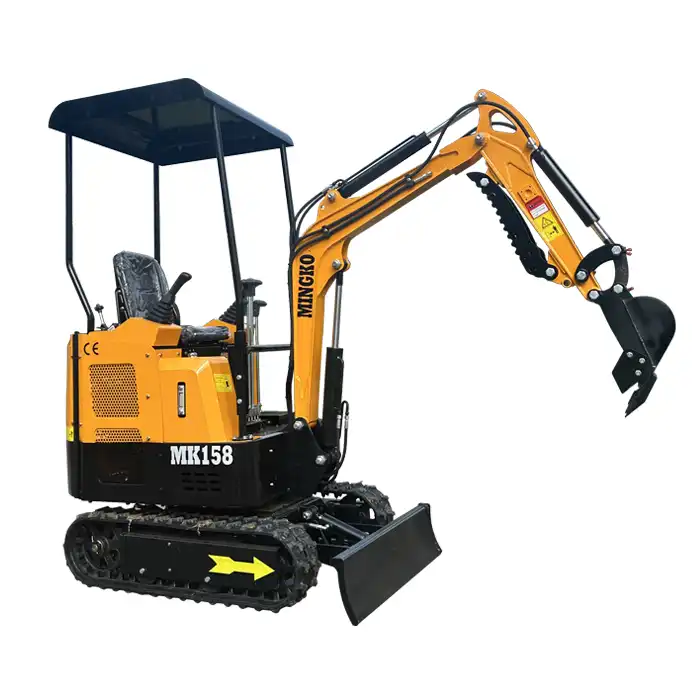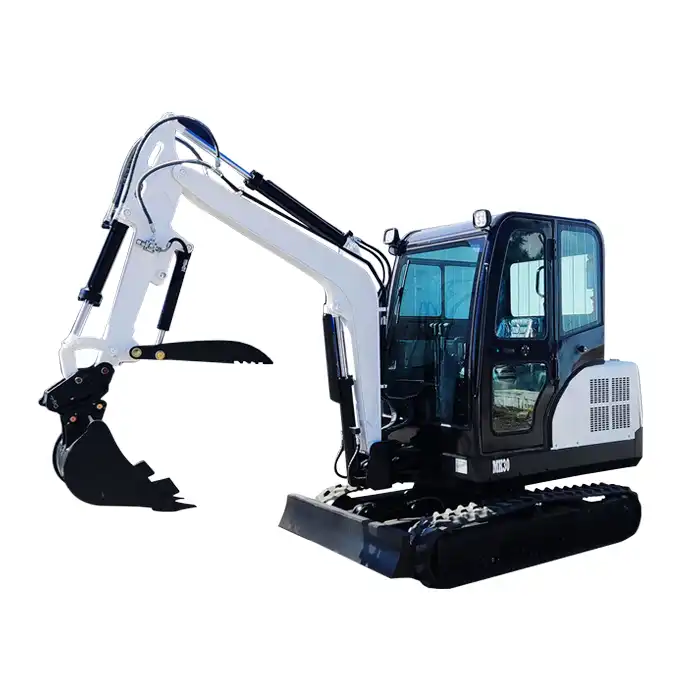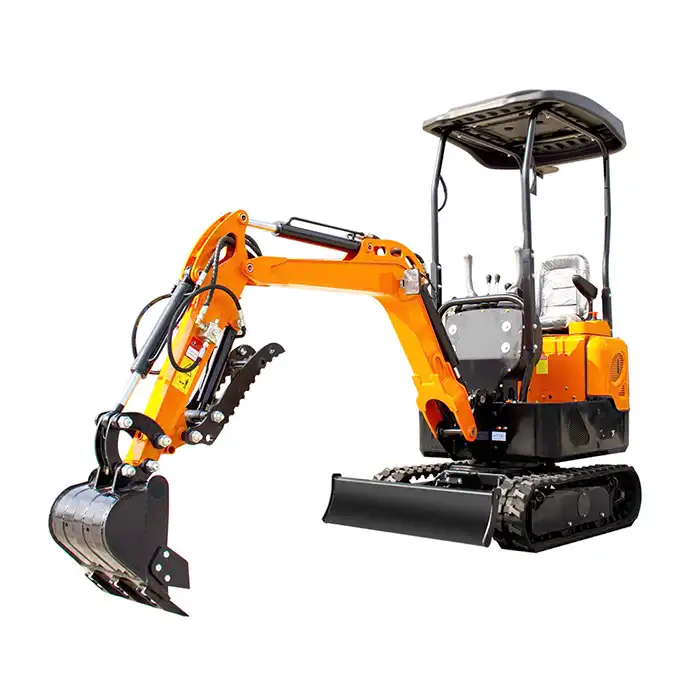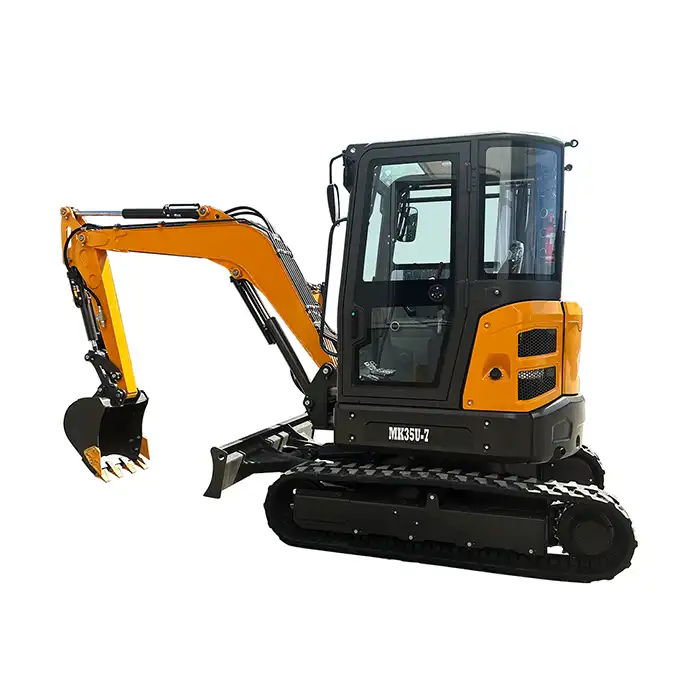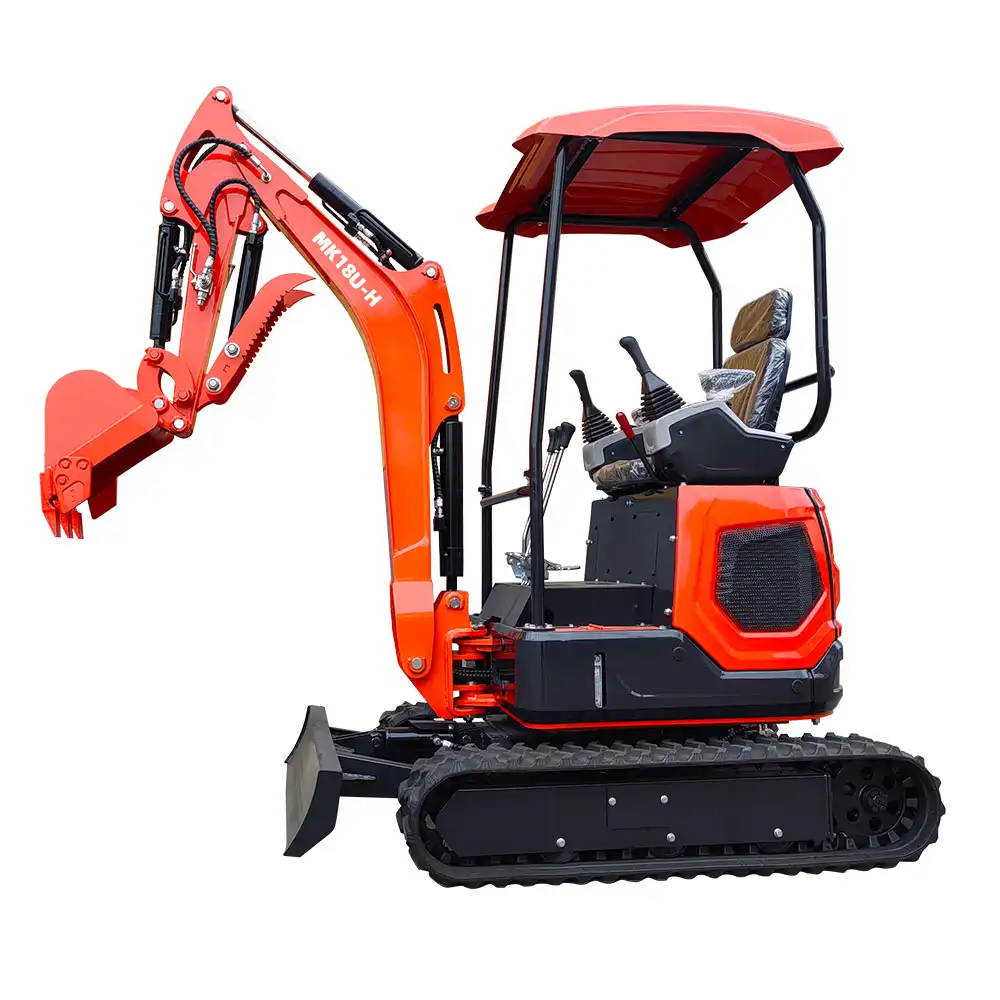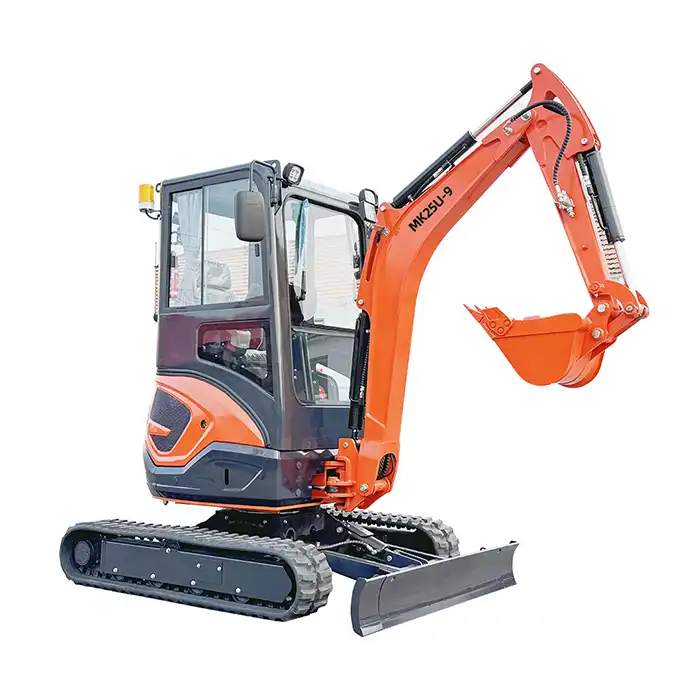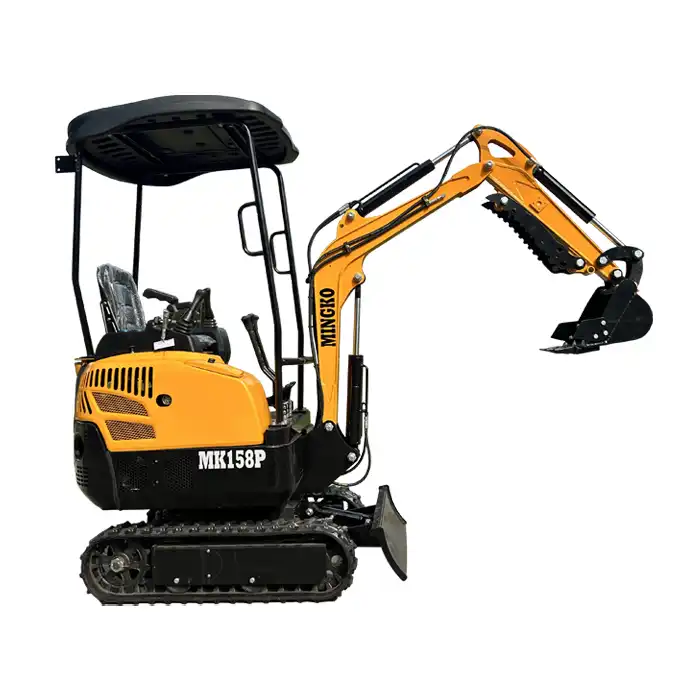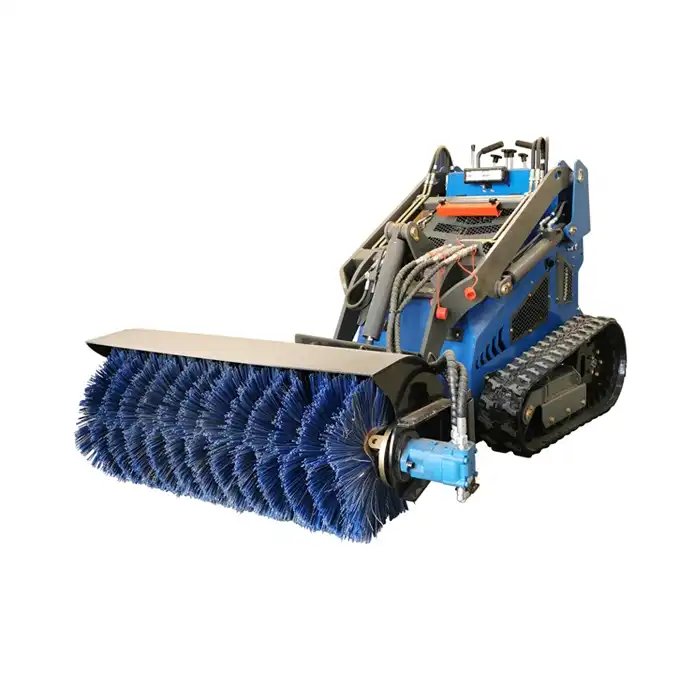
What is the Difference Between a Mini Digger and a Micro Digger?
2024-11-08 11:24:44
When it comes to excavation work, whether for landscaping, construction, or utility installation, choosing the right equipment can significantly impact efficiency and effectiveness. Two popular options in the compact machinery market are mini diggers and micro diggers. But what sets them apart? Let's delve into the nuances of these Mini Excavators.
Understanding the Basics: Mini vs. Micro Diggers
Mini Diggers: The Compact Powerhouses
Mini diggers, often synonymous with mini excavators, are designed for tasks that require more power and reach than what manual labor or smaller machines can offer. Typically, a mini digger weighs between 1 to 5 tons and is ideal for.
Residential Construction: Mini diggers are perfect for tasks like digging foundations, installing pools, or landscaping, offering the power and reach needed for larger excavations, while maintaining efficiency in more expansive outdoor projects.
Utility Work: SMicro diggers are ideal for laying cables or pipes in areas where larger machinery can't access, thanks to their compact size and maneuverability, allowing them to work in tight, restricted spaces with precision.
Demolition: Exactly! Micro diggers excel in small-scale demolition projects where attention to detail is crucial. Their ability to work in confined spaces, like between buildings or within structures, ensures that demolition can be done with accuracy. This precision reduces the risk of collateral damage to nearby areas, making them the ideal choice for tasks such as removing small walls, breaking up concrete, or clearing debris in tight urban environments.
Micro Diggers: The Nimble Contenders
Micro diggers are even smaller, usually weighing less than 1 ton. These machines are tailored for.
Tight Spaces: Micro diggers are excellent for work in backyards, inside buildings, or in urban environments where space is limited. Their small size and maneuverability allow them to access areas that would be challenging for larger machinery, such as narrow pathways, small yards, or tight indoor spaces.
Light Landscaping: Micro diggers are ideal for garden work, such as planting trees, creating small ponds, or digging garden beds. Their compact size allows them to easily maneuver around landscaping features, making them perfect for precise digging in tight garden spaces.
Indoor Projects: Due to their compact size and reduced emissions, they're perfect for indoor renovation tasks.
Size and Power: A Comparative Analysis
Dimensions and Maneuverability
The primary difference lies in their size. Mini diggers are larger, which gives them more digging depth and reach but requires more space to operate. Micro diggers, on the other hand, can navigate through standard doorways or garden gates, making them incredibly versatile for confined spaces.
Engine Power and Performance
Mini excavators come with more powerful engines, which translates to greater bucket capacity and lifting strength. This makes them suitable for heavier tasks. Micro diggers, while less powerful, provide enough force for light to medium tasks and excel in precision work where excessive power could be detrimental.
Operational Scope and Versatility
Attachment Compatibility
Both types of diggers can use various attachments, but mini diggers often have a broader range of compatible tools due to their size and power. This includes breakers, augers, and larger buckets. Micro diggers can handle attachments too, but these are typically smaller in scale.
Transport and Accessibility
Transporting a micro digger is generally much easier thanks to its lighter weight and compact size. It can often be loaded onto smaller trailers or even fit into large vans, reducing the complexity and cost of transportation. This makes it a convenient choice for smaller projects or when access to tight spaces is required. In contrast, mini diggers are larger and heavier, so they typically need a dedicated trailer or truck for transport. This increases the logistical requirements and costs, particularly if the job site is remote or hard to access. While mini diggers are more suitable for larger-scale tasks, their transportation is more expensive and complicated compared to micro diggers.Cost and Efficiency Considerations
Investment and Running Costs
Mini excavators are more expensive both in initial purchase and maintenance due to their complexity and size. However, their efficiency in larger jobs can offset these costs. Micro diggers are less costly, consume less fuel, and are cheaper to maintain, making them attractive for smaller businesses or occasional use.
Project Suitability
Exactly! The decision between a mini and a micro digger largely depends on the scale and nature of the project. For larger-scale tasks that require significant earth moving, deeper digging, or extended reach, a mini digger is the better choice due to its greater power and digging capabilities. It's perfect for big excavation projects like digging foundations, landscaping large areas, or heavy-duty trenching.
On the other hand, for projects where space is limited and precision is key—such as in tight backyards, narrow streets, or indoor tasks—a micro digger excels. Its compact size and excellent maneuverability make it ideal for precision work in confined spaces, like digging for utilities, small-scale demolition, or working around existing structures.
Conclusion
In summary, while both mini and micro diggers offer unique advantages, the choice hinges on the specific requirements of the job at hand. Mini diggers bring more power and capacity for larger or more demanding tasks, whereas micro diggers shine in scenarios where space, accessibility, and precision are paramount.
For those looking to invest in or rent these machines, consider the scope of your projects. Shandong Mingko Industry Corporation, with its extensive experience since 1990, provides a range of mini excavators tailored to meet diverse needs globally, ensuring that whether you opt for the robust capabilities of a mini digger or the nimble agility of a micro digger, you're equipped with quality machinery designed for efficiency and durability. For more information or to explore options that best fit your project needs, feel free to reach out to us at sales@mingkomach.com.
References
1. "The Evolution of Compact Excavators" - Construction Equipment Magazine
2. "Choosing the Right Excavator for Your Project" - Machinery Today
3. "Mini Excavator Applications in Urban Environments" - Urban Development Journal
4. "The Impact of Machine Size on Construction Efficiency" - Journal of Construction Engineering
5. "Innovations in Micro Digger Technology" - Engineering Innovations Review
6. "Cost Analysis: Mini vs. Micro Excavators" - Financial Times Construction Section
_1729500664700.webp)
